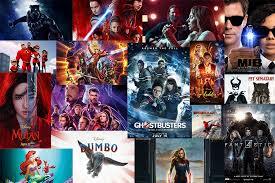Why are all movies remakes? Risk aversion in the media landscape
In the past few years or so, we have seen a dramatic increase in the production of remakes and sequels of beloved movies. While nostalgia-baiting has worked previously, it has evidently hit a point of diminishing returns as studios struggle to find the pulse of audiences’ cinema needs.
Imagine you watch a movie in your childhood – the multi-coloured, whirlwind of a story grips and leaves you equal parts satisfied and wanting for more. Some years later, when you’ve grown, developed new tastes, and favour new favourites, you hear that the studios have decided to remake that once-beloved film of yours. You’re excited as you gear up to revisit that time of your childhood. You get the tickets, you watch the movie, and studio houses add another figure to their empirical study. Soon, another remake is announced, but this one is met with slightly lesser enthusiasm. Then another, then another, and another, till all you can see is a movie off a TV show, a TV show off a movie, a movie which is a remake of a remake, or a sequel to a franchise dead and buried.
The word is “nostalgia-bait” and it has effectively ruined cinema.
To the uninitiated, it may seem like there are just no new ideas anymore. After all, why would studios fund projects that are stale and done away with? The answer is, as it always has been, money. Production houses rely on previously successful Intellectual Properties (IP) to keep bringing people back into the theatres. As technology has progressed, movies are more accessible to us, for cheaper. A simple streaming service subscription will give me access to that movie a little after its release. Why should I bother to go to the cinema hall if I can watch it from my couch? This insecurity of sales, makes producers want to take lesser risks. They would rather fund another multi-million dollar superhero project that tells the same story it has always told before than fund a movie that goes against the tide. This risk aversion has gotten especially worse since the onset of the 2010s when we saw a decline in the sale of at-home DVDs. Usually, producers could rely on a second, bigger, wave of movie sales if it didn’t do so well in theatres. With the decline in the sale of physical copies, a chasm has opened, which studios fill with the fluff of a remake.
Who wouldn’t want to watch their favourite Disney princess reimagined with a popular actress playing the titular role? The announcement of Beauty and the Beast, with Emma Watson playing Belle was welcomed wholeheartedly by her fans. Though critics wouldn’t call that movie ground-breaking by any means, it certainly kept Disney alive in the internet conversation for a good few weeks. This release is important because it marks an era where all Disney would announce was a remake of an animated children’s film. Mulan, Aladdin, The Little Mermaid, and Cruella; though masterful in their display of CGI, get tiring once you see the pattern repeating.
The issue is not just Disney though, any IP that once had a cult following is now being led to the guillotines. Nosferatu, The Chronicles of Narnia, and How to Train Your Dragon are just among the few who are going through a revamp.
Sometimes a remake can truly turn the tide. Take the Dune series for one – upon the announcement of the new movie’s release, many naysayers criticised its arrival and stood steadfast with the David Lynch version of 1984. Now, Dune reigns as one of the highest-grossing movies of the 2020s. Reimaginations and different interpretations are all well and good but when it actively stops real stories from being told, is when the problem arises. The people of today are facing different issues than say, the 1990s. Simply changing the set of actors will not erase the fact that modern audiences need their problems and true selves represented on screen. This means letting writers take creative risks, exploring and portraying a whole range of human emotions and experiences that were closed off to us before. Certain production houses like A24 have taken this step, and it has paid off phenomenally for them. With a guaranteed Oscar nomination (or win) under their belt every year, the media house has proven that good and original stories can be told without a multi-million dollar budget. Trusting your audiences to recognise talent and effort can go a long way to build faith among both parties across the screen. This is the model A24 followed with their films, and now they have a reliable demographic that looks forward to their work; their creative risks have paid off big time.
Hopefully, in the coming years, as producers see pieces like this, or read any social media comment section ever, they might realise that audiences would rather invest and feel excited about something new, than watch the same regurgitation just for the sake of it.
Read Also: The Fault in Our Movies
Featured Image Credits:
The Stanford Daily
Anvesha Tripathi

